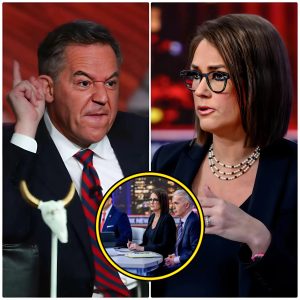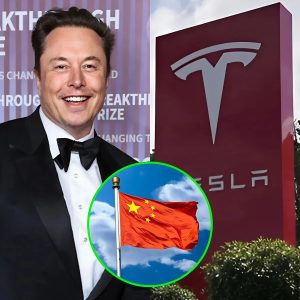A struggle between an Australian mining company and Chinese investors has pulled back a curtain on the intensifying global conflict for rare-earth minerals.
Months earlier, the Australian government had blocked a Chinese investor, already the company’s largest shareholder, from doubling his stake to 19.9 percent because of national security concerns. Now, Northern Minerals suspected that same investor — a critical minerals magnate named Wu Tao — might have used proxies to defy the order and double his holding anyway.
“We felt that it was appropriate to refer the matter to the government,” Northern Minerals’ current executive chairman, Adam Handley, said in an interview.
Those concerns sparked a government investigation that resulted in June in the Australian treasurer ordering Wu’s company, Yuxiao Fund, and four others to sell shares worth $15.5 million by the first week of September.
Wu has not spoken publicly about the ruling and did not respond to repeated emailed requests for comment. When reached by phone, he said: “I’m very busy, and I don’t need this,” before hanging up.
The case has made headlines in Australia, which sold about $100 billion worth of mineral exports, including iron ore and lithium, to China last year.
But China also produces minerals that Australia — and the rest of the world — needs: It has the lion’s share of global reserves in rare earths, which are needed to make an array of products including cellphones and wind turbines, and has dominated their production and refinement for decades.
Countries like Australia and the United States are trying to lessen their dependence on China for these critical minerals, not least because Beijing has proved willing to cut off shipments for political reasons.
Now Northern Minerals is aiming to become one of the first suppliers of dysprosium and terbium — heavy rare earth elements used in electric vehicles and fighter jets — outside China.
That’s where it gets complicated.
“We want China as a customer for Australian critical minerals, but we don’t want China actively involved in the Australian critical minerals industry,” said Benjamin Herscovitch, a researcher at the Australian National University in Canberra.
‘The risk of absolute dependence’
Despite their name, rare earths are not uncommon. But isolating the 17 metallic elements is a lengthy and messy process that, until recently, most countries were happy to cede to China.
That’s why a 2022 deal between Northern Minerals and a larger rare earths miner, Iluka Resources, to refine its dysprosium and terbium was globally important. The $1.1 billion refinery — backed by an $800 million Australian government loan — is under construction in remote Western Australia. When completed in late 2026, it will be the first fully integrated plant outside of China to separate both heavy and light rare earths.
The refinery will give Australia and its allies rare earth access without fear of Beijing blocking supply, Iluka CEO Tom O’Leary said. “Western governments do understand the existential nature of the risk of absolute dependence” on China for rare earths, he said in an interview.
Rare-earth magnets are used in electric motors for green technology such as electric vehicles and wind turbines. But the motors are also crucial for weapons systems, including missiles and fighter jets. Heavy rare earths — so called because of their greater atomic weights — enable the magnets to perform at high temperatures.
Lynas, a Perth-based rare earths producer that is the biggest outside of China, will build a Texas refinery using a $258 million grant from the U.S. Department of Defense. It also will start producing dysprosium and terbium next year at its Malaysia plant, a move that CEO Amanda Lacaze said would help ensure the United States isn’t “captive” to China for rare earths.
As these efforts have accelerated, however, so have China’s. Beijing has restructured its rare earths industry in recent years to give it greater control over mining, processing and exports, said Marina Zhang, an associate professor at University of Technology Sydney.
That control has led to artificially low prices that prevent non-Chinese companies from pursuing new rare-earth projects, O’Leary said.
China wields other types of influence against competitors. Lynas’s Malaysia plant and planned Texas refinery have been targeted by pro-China social media misinformation campaigns, according to two studies. Lacaze said that it was hard to know whether the misinformation was directed by Beijing but that it’s “rational” for China to try to maintain its control over rare earths.
“When in the history of the global economy has a monopolist willingly given up their position in the market?” she said.
The Chinese Foreign, Industry and Commerce ministries did not respond to requests for comment.
But analysts say these cases underscore how vitally important Beijing views its hold on the global rare earths industry.
“There is no question they want to maintain that dominance, that near lock on the industry, and do whatever they can to subvert Western efforts to diversify and introduce greater security into the supply chain,” said Martijn Rasser, a former senior intelligence officer and analyst with the CIA who is now the managing director of Datenna, an intelligence company focused on China.
Suspect shares
At first glance, there was little alarming about the purchases of Northern Minerals stock in September. A company in the British Virgin Islands bought shares worth $4 million. So did one in the United Arab Emirates. Someone in Singapore accumulated $2.5 million worth over the course of a week, and an investor in China secured a similar amount in one day.
Then there was Yuxiao Fund, which had been blocked from doubling its stake a few months earlier but now bought $2 million in shares, maintaining its holding at about 10 percent.
As Northern Minerals began a standard review of the transactions, however, signs appeared that the other buyers could be tied to Yuxiao Fund, according to Handley and an Oct. 30 filing with the Australian Securities Exchange (ASX).
On paper, the Singapore-based company was owned by its namesake, a Chinese national named Wu Yuxiao. According to Northern Minerals filings with the ASX, however, Yuxiao Fund was really controlled by his father, Wu Tao. Wu Yuxiao did not respond to emails and phone calls requesting comment.
Wu Tao is executive director and general manager of Jinan Yuxiao Group, which operates mineral processing plants and a shipping company in China and runs a mining empire in Mozambique. The group says it has assets worth $1.4 billion.
The Washington Post found apparent links between those businesses and two of the four suspected proxy share buyers. The shareholders’ representative for Black Stone Resources, the investor based in the British Virgin Islands, has the same name as a deputy general manager at Jinan Yuxiao Group, according to the company’s website and state media reports. The Singapore-based investor runs a small tech company that Wu Tao founded and is registered at the same address as Jinan Yuxiao Group.
Northern Minerals sent its concerns to the Foreign Investment Review Board, Handley said.
Almost immediately, however, the company faced another crisis. Wu Tao was seeking a seat on Northern Minerals’ four-person board, and so were three others who appeared to be connected to him. To some at Northern Minerals, it looked as if Wu Tao was launching a proxy takeover.
Northern Minerals delayed its annual general meeting — and the board vote — as the FIRB investigation continued and its stock price slid. On May 27, its executive chairman resigned.
On June 2, Australian Treasurer Jim Chalmers ordered Yuxiao Fund and its four suspected proxies to sell their $15.5 million in shares within 90 days.
The order given, Northern Minerals held its general meeting on June 6, and Wu Tao came within two percentage points of the vote for a board seat thanks, in part, to the suspect shares. The three other candidates linked to him also lost.
Wu Tao’s near election exposed a “regulatory shortcoming,” said Ian Satchwell, an adjunct professor at the University of Queensland. Had he won, it would have given him insight into Northern Minerals’ bid to break China’s grip on heavy rare earths. Had others also been elected, it could have given them control.
The saga isn’t over. As of July 31, the last time Northern Minerals issued a public update, Yuxiao Fund and the four associated shareholders had not complied with the divestment order. They still have two weeks to do so.







